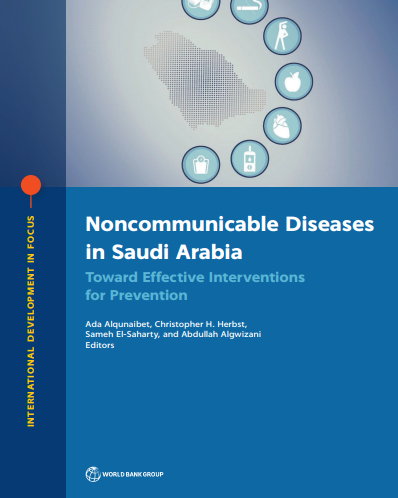Noncommunicable Diseases in Saudi Arabia
Editorial: The World Bank Group
Licencia: Creative Commons (by)
Autor(es): Alqunaibet, Ada, [et al.]
Saudi Arabia is at an early stage of its demographic transition to an older population, and so it has an opportunity to prepare early for a rising noncommunicable disease (NCD) epidemic. NCDs, such as cancers, cardiovascular diseases, diabetes, and chronic respiratory diseases and their associated behavioral risk factors—tobacco use, unhealthy diet, and physical inactivity—are an increasing economic and public health challenge. An aging population is expected to significantly increase the prevalence of NCDs and the related demand for costlier health care services. Interventions and reforms to prevent NCDs, and to minimize current and future treatment costs, are needed now, particularly if Saudi Arabia is to achieve the Vision 2030 goal of increasing life expectancy from 75 years in 2021 to 80 years in 2030. To support strategic planning efforts, Noncommunicable Diseases in Saudi Arabia: Toward Effective Interventions for Prevention assesses the latest evidence on the prevalence and risk factors; explores the health and economic burden of NCDs, as well as their impact on human capital; and identifies key gaps in prevention efforts and ways to address these gaps.
[Washington: 2021]
Compartir:
Una vez que el usuario haya visto al menos un documento, este fragmento será visible.


